Arts University Plymouth Announces Fab Foundation President Sherry Lassiter as Keynote Speaker for Making Futures 2024
Arts University Plymouth has announced that Sherry Lassiter, President and CEO of the Fab Foundation, will be the lead Keynote Speaker at Making Futures 2024, the arts university’s leading research platform and conference. The biennial event, which draws an international community of interdisciplinary creative scholars and practitioners together, will run from 17 to 19 October 2024 in Plymouth, UK, and online.
Convened and curated by Associate Professor Stephanie Owens, Dean of Arts, Design & Media at Arts University Plymouth, this year's Making Futures conference will explore creative encounters with current material research and innovation where artists, artisans and designers work across disciplines and communities toward a more equitable, sustainable and resilient world.
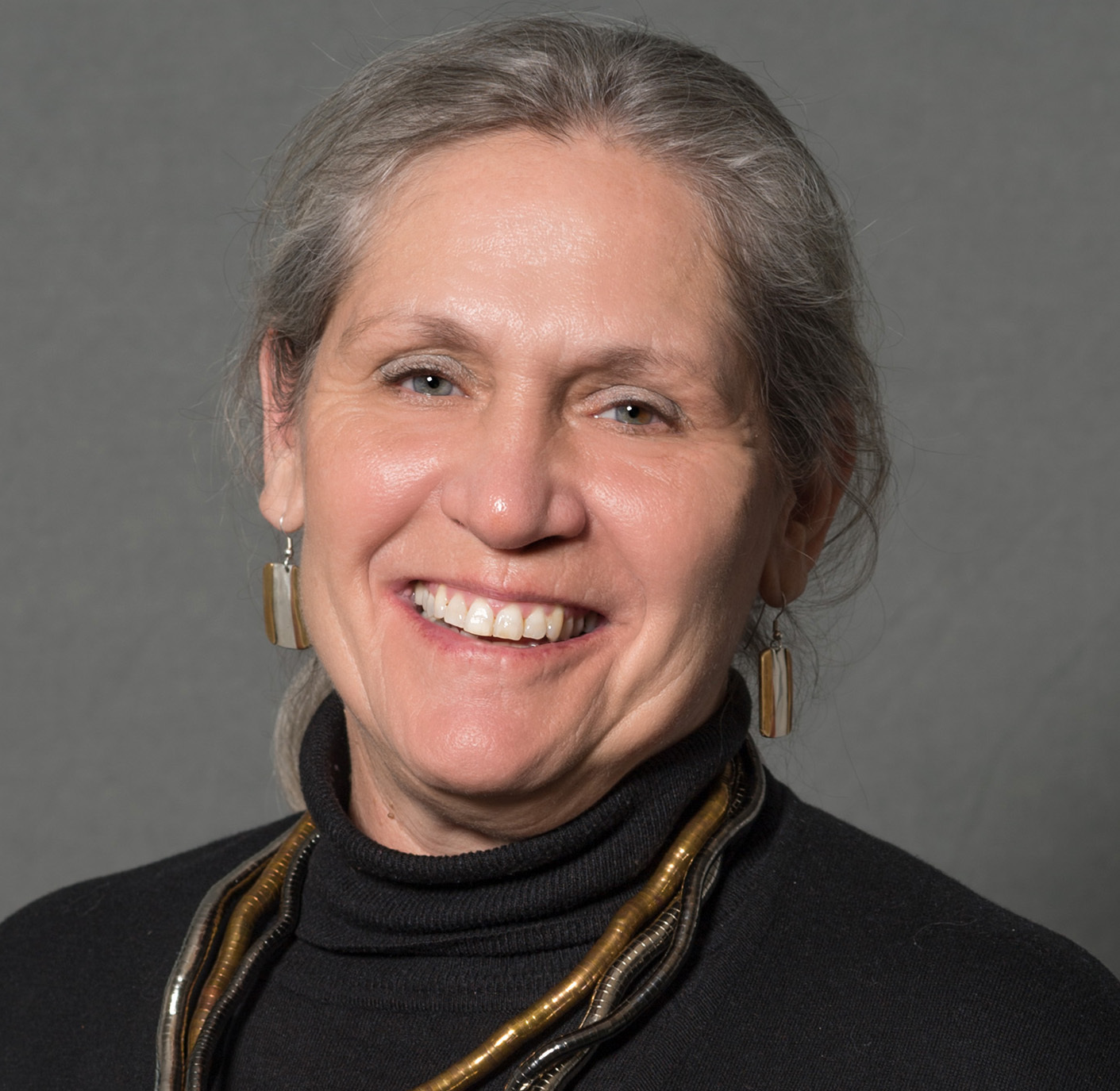
Additional planned Keynote Speakers for Making Futures 2024 include material designer and systems thinker Elissa Brunato, CEO and founder of Radiant Matter, London. Other featured speakers will include Nancy Diniz, co-founder of bioMATTERS; and Benito Juarez Velez, founder of Floating Fab Lab Amazon and founder of FabLab Peru and the Latin American Fab Lab Network.
Tickets for Making Futures will go on sale Monday 19 August 2024 at https://makingfutures.org.uk/.
In addition to being President and CEO of the Fab Foundation, Making Futures Keynote Speaker Sherry Lassiter acts as Director for the Fab Lab Outreach Program at the Center for Bits and Atoms, MIT, and is one of the architects of the MIT global initiative for field on-site technology development, the Fab Lab program. A Fab Lab is a rapid prototyping platform for technical education, innovation and personal expression. The Fab Lab network includes over 2700 digital fabrication facilities in 135+ countries.
Lassiter is President of the Fab Foundation, a non-profit committed to building technical capacity, improving individuals’ abilities to develop themselves and their communities and bringing access to tools and knowledge that cultivate and support innovative practices. Summer 2024 Lassiter is hosting the FAB24 México conference and symposium, a global convening of creative and innovative thinkers who share a passion for digital fabrication and technology.
Lassiter's long history at the forefront of imagining how new technologies shape human relationships and societies provides an important context for the ninth iteration of Making Futures, whose own history shares with Lassiter a desire to look beyond the instrumentalisation of new technology to the transformative impact it has on our social and cultural lives.
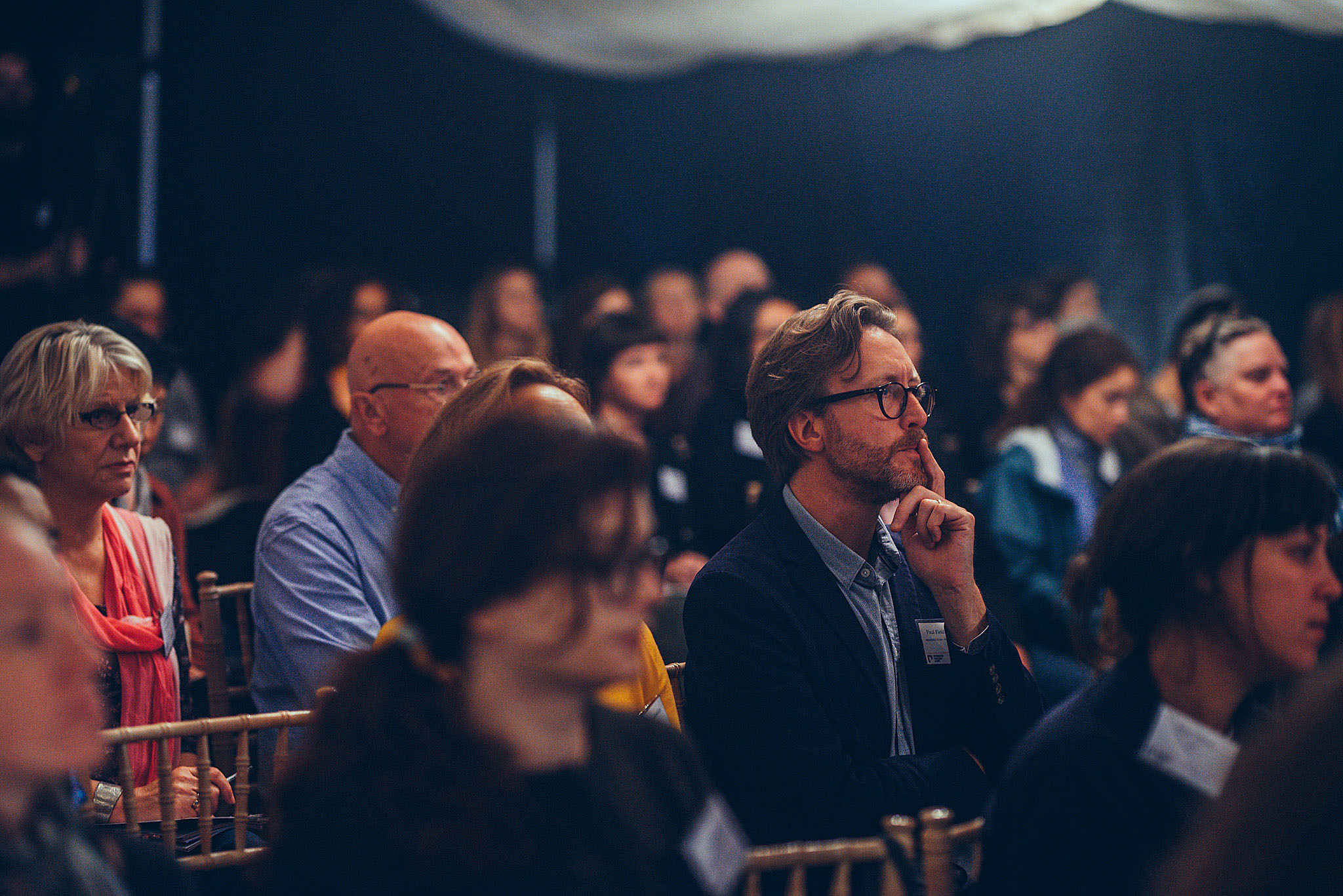
Making Futures participants will explore how encounters with current material research and innovation begin to alter both the formal and conceptual expectations of craft, opening traditional techniques to the physical, chemical, biological and environmental dimensions of physical matter beyond object-making, to take a more holistic view of how materiality shapes and influences human experience.
In an active, cross-sector programme of presentations, demonstrations and material masterclasses, the 2024 biennial conference will explore social and material innovations, individual and global fabrication, analogue and digital technologies, knowledge production and exchange, archival and experimental processes, collaborations and partnerships, projects and products, studio pedagogies and practices which will influence the future of craft as a material practice and as a cultural idea.
Arts University Plymouth offers academics and students a unique interdisciplinary ecosystem of materials, processes, and technologies, spanning cutting-edge facilities including Fab Lab South West and a comprehensive Materials Lab that supports innovative practices in hot glass, ceramics, and biomaterials.
Associate Professor Stephanie Owens said: “This year we’re evolving the focus of Making Futures to balance the disciplines of contemporary craft and material innovation. As with all forms of creative practice, the boundary of what is considered ‘craft’ is fugitive—adapting and transforming as we look with urgency at how the deep, historical knowledge and artisan traditions associated with craft might provide contemporary society with an alternative to our current habits of consumption and enable us to live more respectfully with each other, the natural world and our planet.
“The power of crafting, or of shaping the physical realm, is often juxtaposed with computation and technology, but as distributive manufacture, distance learning and platform economies have shown, the interface between computation and matter have introduced not merely new, more efficient, sustainable supply chains, but have begun to generate a new language of form and experience that is meaningful beyond craft. This language is symptomatic of a more intertwined creative practice that unites art, design, computation and science in a shared field of human agency and ingenuity. “
Since its establishment in 2009, Making Futures has been a pivotal platform for dialogue around contemporary craft and maker movements and how they relate to the creative industries in 21st century society. The three-day 2024 conference will encourage a rich exchange of ideas across various domains, including individual and global fabrication, and the evolving synergy of art, design, computation, and science. Making Futures 2024 stands as a crucial platform for examining the future of craft, not merely as a practice but as a transformative cultural idea.
This iteration of Making Futures poses pivotal questions about craft's engagement with material science innovations, ecological challenges, and the quest for a sustainable future. The organisers are seeking contributions from designers, artists, makers, educators, scholars, policymakers, scientists, and any creator or curator of culture on the topics covered in the upcoming conference focused on areas of material practice and craft that are breaking new ground.
Six conference tracks for Making Futures 2024 have been selected:
Craftsmanship, Artisanal Knowledge and the Aesthetics of Place
Rethinking the Relationship Between Body, Fashion and Ornament
Generative Materials? Toward a Convergence of AI and Matter
Softsystems – Biology, Networks and Post-natural Frameworks for Co-creativity
Optimising Craft Techniques for Sustainable Alternatives to Extractive Practices
Futurecraft – Pathways for Art, Design and Materials Science Research Collaborations
The conference will include presentations from leading experts in their fields, panel discussions, workshops, masterclasses and artisans-in-residence, culminating in later publication of the next Making Futures Journal to collate key learnings and outcomes from the event.
Contributions to Making Futures 2024 from experts at Arts University Plymouth will include sessions from Fab Lab South West Manager and Knowledge Exchange Coordinator, Ben Mundy, relaunching the arts university’s expanded and enhanced Fab Lab, and detailing Plymouth’s journey to become the UK’s first city to join the Fab City network, in 2019.
Visit https://makingfutures.org.uk/ for more information. Ticket options include full three-day tickets with participation in masterclasses and workshops, single day tickets, plus discounts for independent practitioners and Arts University Plymouth staff members and students.
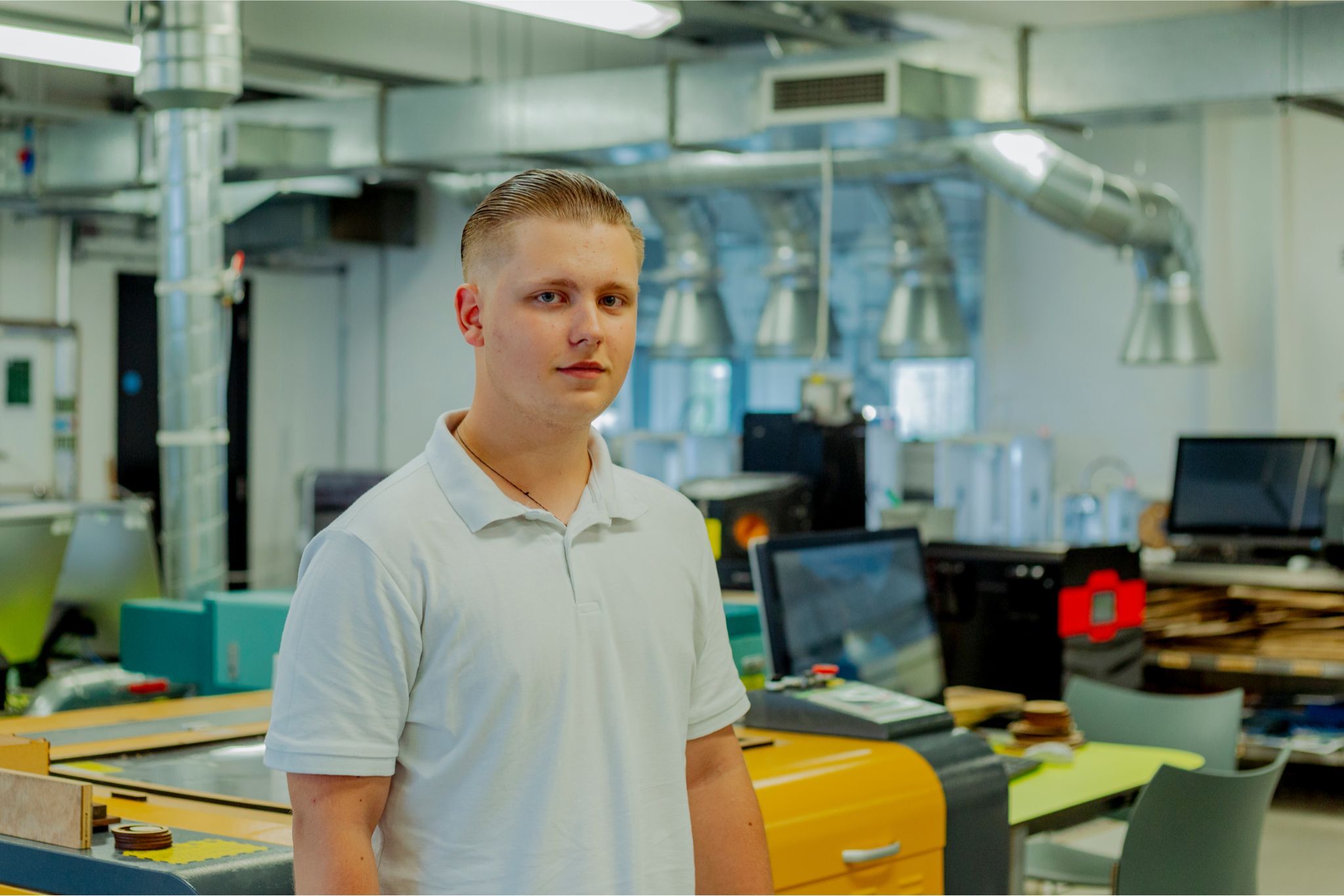
15 year-old Mykhailo in Fab Lab Plymouth
Mykhailo was born and raised in the small Ukrainian town of Kamianske, but was forced to leave his home due to the war in Ukraine. Mykhailo now lives in Plymouth with his mother, who said: “We have been sheltered by a very wonderful family in your beautiful country.”
Mykhailo has always had a passion for digital design, and began exploring the world of 3D modelling using Autodesk Fusion 360 from the age of ten. He has since taken part in numerous competitions and has been recognised for his advanced modelling skills.
Mykhailo said: “I was the winner and prize-winner of many competitions in the category of 3D modelling using CAD. I also took part in the all-Ukrainian competition for the defence of research works of students who are members of the Small Academy of Sciences of Ukraine, and won first place in the second stage.”
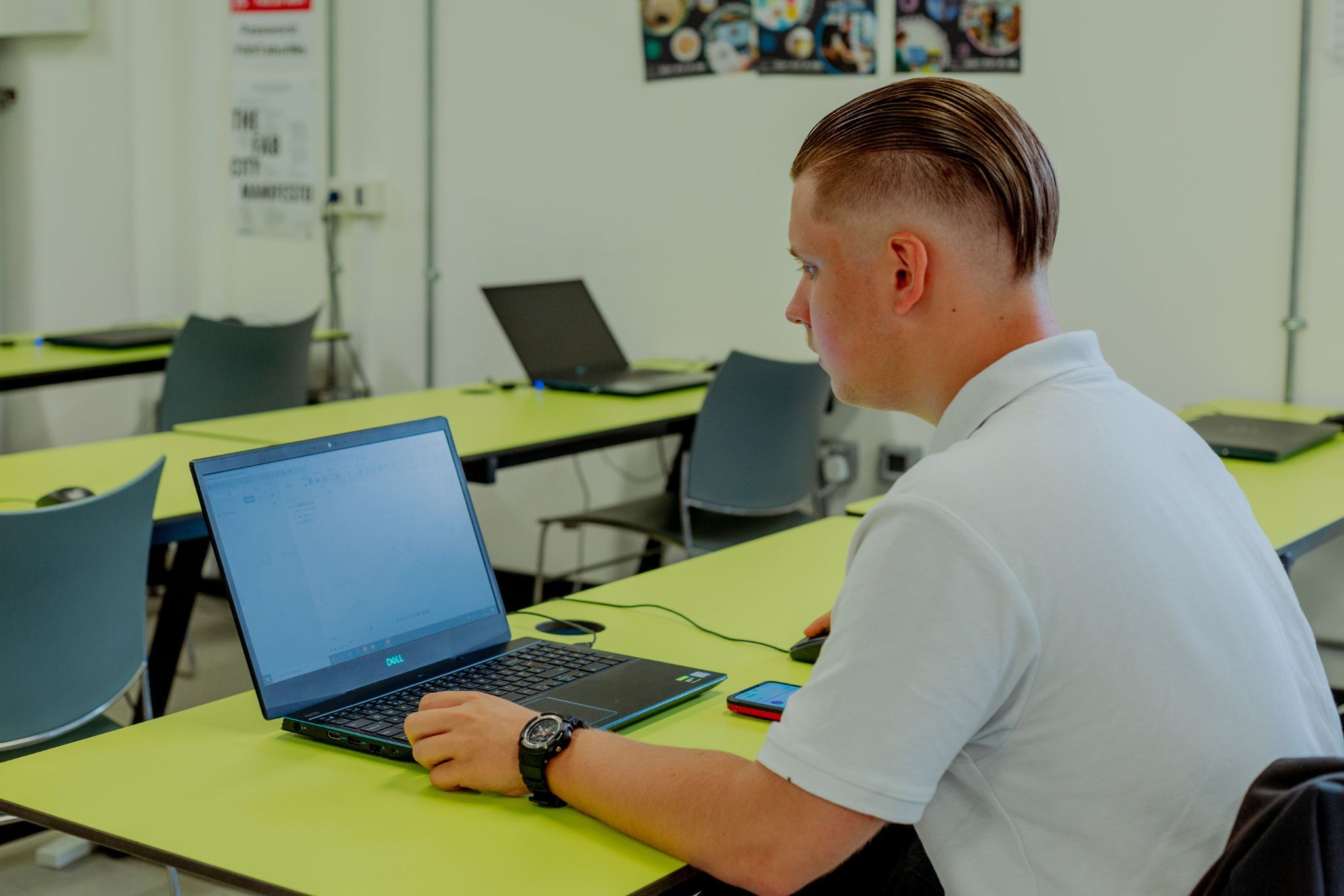
Mykhailo in Fab Lab Plymouth using Autodesk Fusion 360
Looking to further expand his skills, Mykhailo discovered the Smart Citizens Programme’s free ‘Autodesk Fusion 360 Certified User Training’ at Arts University Plymouth. This three-day intensive course, held in our state-of-the-art Fab Lab, supported participants to grow their skills in the core design principles of Fusion 360. Demonstrating the versatility of CAD, the Smart Citizens’ Fusion 360 courses have supported around 40 local businesses, people and students working across a diverse range of sectors including; manufacturing, education, science, creative and cultural.
Mykhailo said: “I really enjoyed the teaching style, and the tutors were very friendly and attentive. During the training, I learned some new features of the programme that I did not know before.”
Participants had the option to take the Autodesk Fusion 360 Certified user exam at the end of the training, to gain a formal accreditation and demonstrate their skills at an industry entry-level. Mykhailo passed the exam with flying colours, adding the ‘Certified User’ accreditation to his already impressive list of achievements, which include two other Autodesk CAD accreditations that he gained whilst studying in Ukraine.

A previous Fusion 360 model made by Mykhailo
Ben Mundy, Fab Lab Plymouth Manager and course leader, said: “During the Autodesk Fusion 360 training, Mykhailo demonstrated that his skills with the 3D design software were of a level that was advanced for someone of his age. English is not Mykhailo's first language, so the fact he completed the course and then passed the formal exam despite this language barrier was really very impressive. It was a pleasure to have Mykhailo join the course, and we are happy to have supported him on his CAD journey.”
Following the training, Mykhailo is keen to continue developing his knowledge and is excited for the future. Mykhailo said: “I would like to continue studying 3D modelling to make it my profession. After school, I dream of graduating from university having studied three-dimensional modelling and related subjects.”
The Smart Citizens Programme has been supported by The Department for Digital, Culture, Media and Sport, who fund the Cultural Development Fund, which is administered by Arts Council England.
iMayflower: How immersive technology is telling the crucial story of the life force under Plymouth’s waves
It is known as the “lungs of the sea” - the very fabric that gives life to our oceans and one of the building blocks of life as we know it on our planet.
And yet for most of us, the existence of seagrass will have barely registered.
But dive deep under the waves of Plymouth Sound and you can see breathtaking fields of seagrass, long rippling leaves giving birth to a myriad of ecosystems of plants and fish.
Its importance cannot be understated - but it’s not particularly easy to communicate.
Step forward artistic partnership Chloe Georgakis and Will Harvey, the creative design collective behind Future Meadows - a project to create an augmented reality (AR) installation that helps people understand just how crucial the life-giving ‘meadow’ of seagrass that spans Plymouth Sound is.
“Future Meadows is a project using art, design and technology to explore marine ecosystems,” explains Will. “We made an AR installation, which is a physical sculpture, and then an AR overlay.”
By hovering a smartphone or tablet device over the installation, observers can literally ‘see’ the seagrass in action and learn more about how important it is.
Chloe said: “We're leaving our sea beds bare and very vulnerable and we were looking at how we can use art and design to tell the story of seagrass - how the seagrass meadow cleans the water, how it stabilises the seabed floor, is a nursery with juvenile fish and sequesters a huge amount of carbon.”
Seagrasses are aptly nicknamed “the lungs of the sea” because they can generate enormous amounts of oxygen. A single square metre of seagrass can release as much as ten litres of oxygen a day.
In Plymouth, the city is in the middle of a four-year project led by the Ocean Conservation Trust to plant four hectares of seagrass on the bed of the Sound. It’s part of England’s biggest seagrass project.
By planting seagrass in the Sound, the project hopes to create more seagrass meadows which provide homes for juvenile fish and protected creatures like seahorses and stalked jellyfish. Seagrass also has an integral role in stabilising the seabed, cleaning the surrounding seawater and capturing and storing significant amounts of carbon.
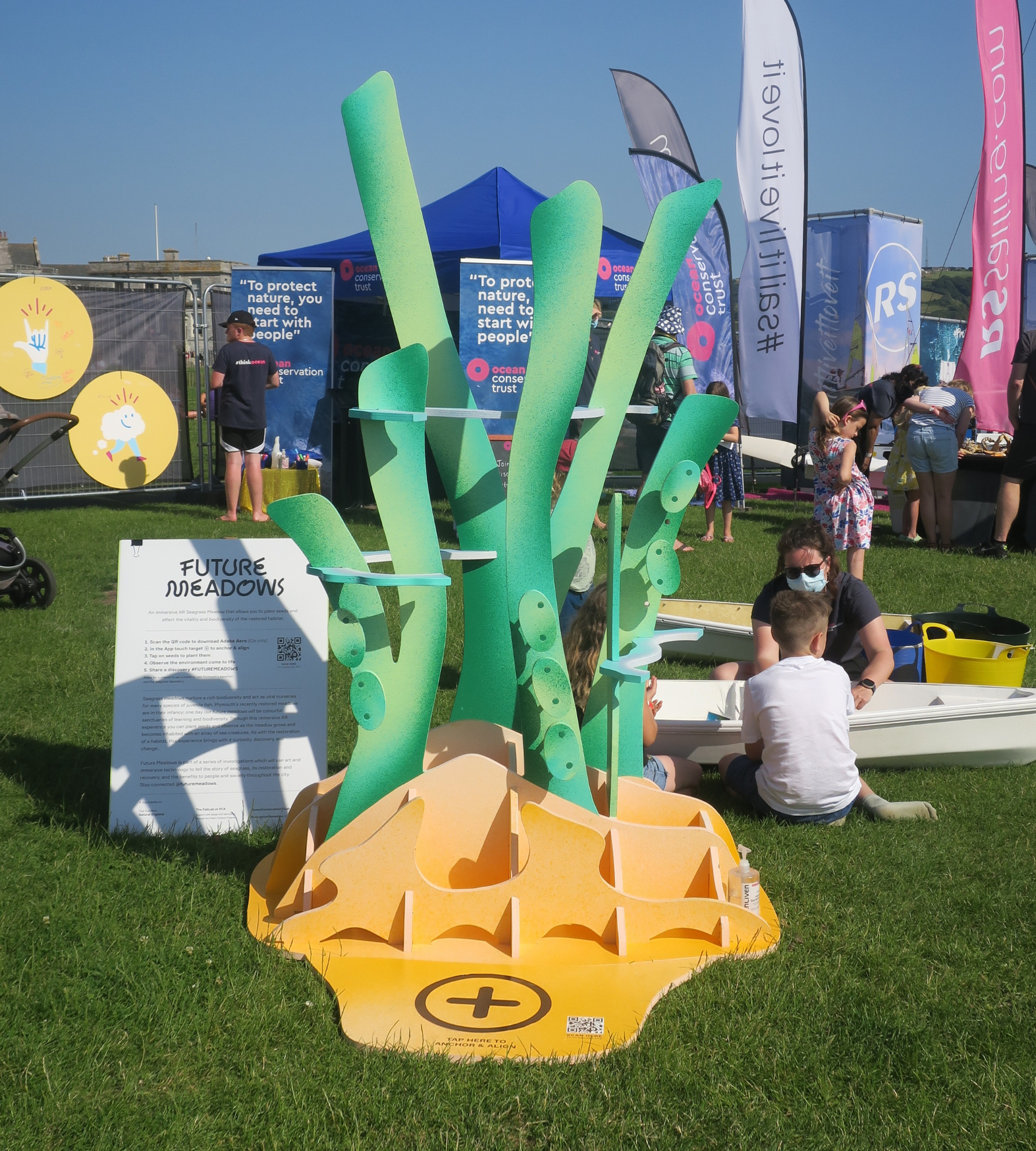
Future Meadows' AR installation at Sail GP
Chloe and Will are playing a key role in communicating the importance of seagrass. They have exhibited the installation at SailGP, the international sailing competition which drew huge crowds to Plymouth’s waterfront, and Illuminate - the annual immersive light show organised by Real Ideas, hosted this year at The Market Hall in Devonport.
“To see people interacting with the piece has been really nice,” says Chloe. “You just endlessly learn through every audience or individual that you watched participate with the piece.”
Future Meadows began life in Fab Lab Plymouth at Plymouth College of Art, where Chloe and Will took part in numerous training through the Smart Citizens Programme, including their renowned ‘Design and Make’ training, learning key skills in 3D computer aided design (CAD) and getting hands on with digital fabrication machinery, such as 3D printers.
They went on to learn more with the support of the Smart Citizens Programme and Fab Lab Plymouth - literally a fabrication ‘laboratory’ aimed at helping innovative designers and creatives - working with cutting-edge fabrication tools. It’s part of a network of 1,000 ‘Fab Labs’ around the globe, and Chloe and Will’s work has been supported by the iMayflower project, which aims to nurture creatives in Plymouth and open up opportunities for them.
They are now full-time creatives, with more inspiring projects in the pipeline, having been approached by Plymouth City Council and the LIFE Recreation ReMEDIES project to support sensitive habitats.
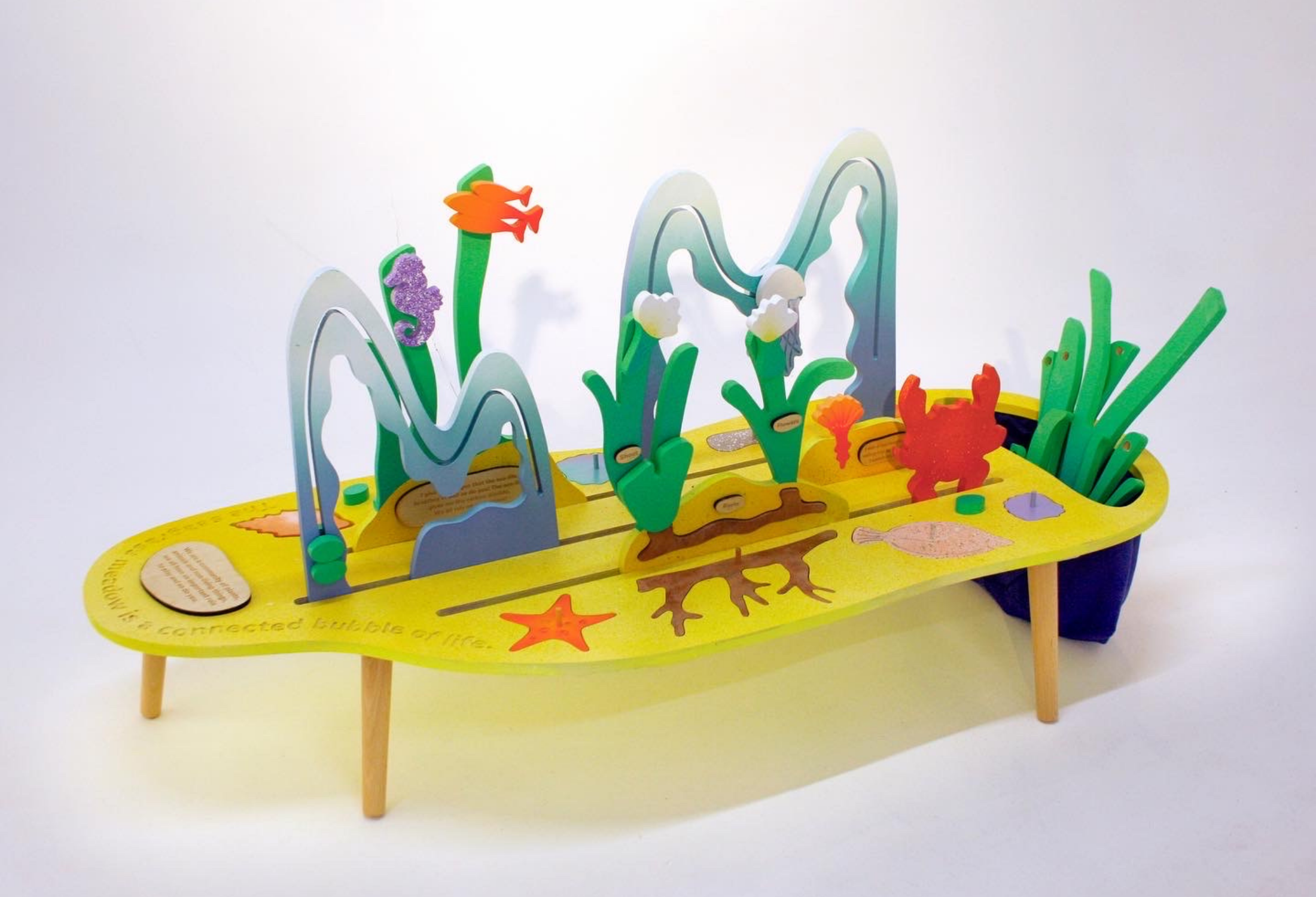
Future Meadow's Seagrass educational puzzle. Image credit: Future Meadows
Chloe said: “Now we're working on two other pieces. One is a puzzle for the children where they build a seagrass ecosystem and they play a game and learn about the ecosystem for play and activity.
“The puzzle is an educational tool that will allow the young people to understand and appreciate the values of the seagrass habitat, in a fun and interactive manner. Inviting children to build a seagrass meadow and discover its wonders and benefits through play and creativity.
“Going forward from that, we're part of the Real Ideas Start Something Immersive programme and we're really interested in looking at how we can use augmented reality, to talk about marine ecosystems and to talk about Plymouth being home to a National Marine Park.
“I think it's really important to help people connect more with nature and also to understand their place in ecosystems and their impact on them.”
Will added: “Creativity is a great tool for communicating different ideas. It's a different way for people to be able to digest quite a complicated subject that could be quite hard to otherwise comprehend.”
This activity is part of the iMayflower project and has been supported by The Department for Digital, Culture, Media and Sport, who fund the Cultural Development Fund, which is administered by Arts Council England. iMayflower is led by Plymouth City Council and delivered in partnership with Creative England, Crowdfunder, Destination Plymouth, Plymouth College of Art, the Real Ideas Organisation and University of Plymouth.